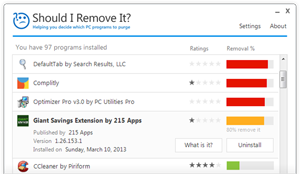Import table
advapi32.dll
RegOpenKeyExA, RegQueryValueExA, RegQueryValueExW, RegOpenKeyExW, RegCloseKey
gdi32.dll
GetTextExtentPoint32W, CreateFontIndirectW, GetObjectW, ExtTextOutW, SetTextColor, SetBkMode, Rectangle, CreateSolidBrush, ExtCreatePen, DeleteObject, DeleteDC, StretchBlt, SelectObject, CreateCompatibleDC, LineTo
kernel32.dll
InterlockedDecrement, CreateSemaphoreW, GetPrivateProfileStringW, Sleep, GetVersionExW, GetModuleFileNameW, SetLastError, LoadLibraryExW, MapViewOfFile, CreateFileMappingW, GetLocaleInfoW, UnmapViewOfFile, GetSystemDefaultUILanguage, GetUserDefaultUILanguage, SearchPathW, MultiByteToWideChar, ExpandEnvironmentStringsA, LoadLibraryA, FlushFileBuffers, CreateFileA, WriteConsoleW, GetConsoleOutputCP, WriteConsoleA, SetStdHandle, GetLocaleInfoA, GetStringTypeW, GetStringTypeA, LCMapStringW, LCMapStringA, FreeLibrary, GetConsoleMode, GetConsoleCP, WideCharToMultiByte, SetFilePointer, VirtualAlloc, IsValidCodePage, GetOEMCP, GetACP, GetCPInfo, GetCurrentProcessId, GetTickCount, QueryPerformanceCounter, VirtualFree, HeapCreate, GetStartupInfoA, GetFileType, SetHandleCount, GetCommandLineW, GetCommandLineA, GetEnvironmentStringsW, FreeEnvironmentStringsW, GetEnvironmentStrings, FreeEnvironmentStringsA, GetModuleFileNameA, GetStdHandle, ExitProcess, InterlockedIncrement, TlsFree, TlsSetValue, TlsAlloc, TlsGetValue, GetModuleHandleA, RtlUnwind, GetStartupInfoW, IsDebuggerPresent, GetProcAddress, LoadLibraryW, SizeofResource, GetCurrentThreadId, FindResourceW, ReadFile, WriteFile, WaitNamedPipeW, GetSystemTimeAsFileTime, HeapDestroy, lstrcmpW, FindResourceExW, LoadResource, LockResource, GetLastError, DeviceIoControl, CreateFileW, CloseHandle, RaiseException, EnterCriticalSection, LeaveCriticalSection, InitializeCriticalSection, DeleteCriticalSection, SetUnhandledExceptionFilter, UnhandledExceptionFilter, GetCurrentProcess, TerminateProcess, GetProcessHeap, HeapSize, HeapReAlloc, HeapFree, HeapAlloc, GetVersionExA, LocalFree
ole32.dll
CoCreateInstance, CoUninitialize, CoInitializeEx
setupapi.dll
SetupDiEnumDeviceInterfaces, SetupDiDestroyDeviceInfoList, SetupDiGetDeviceInterfaceDetailW, SetupDiGetClassDevsW
shell32.dll
Shell_NotifyIconW, ShellExecuteW, SHGetFolderPathW
shlwapi.dll
PathAppendW
user32.dll
SetWindowLongW, GetWindowLongW, GetWindowRect, CallWindowProcW, EndPaint, BeginPaint, GetSysColor, InvalidateRect, SetCursor, LoadCursorW, ShowWindow, CreateWindowExW, FindWindowW, RegisterClassExW, LoadIconW, DestroyWindow, SetActiveWindow, DispatchMessageW, TranslateMessage, PostQuitMessage, IsDialogMessageW, GetMessageW, DefWindowProcW, GetSystemMetrics, SetWindowPos, CreateDialogParamW, DestroyMenu, TrackPopupMenu, ModifyMenuW, RegisterWindowMessageW, GetCursorPos, GetSubMenu, LoadMenuW, GetDoubleClickTime, UpdateWindow, AttachThreadInput, GetWindowThreadProcessId, GetForegroundWindow, GetDlgItem, LoadImageW, SendMessageW, SetDlgItemTextW, SetWindowTextW, LoadStringW, DialogBoxParamW, SetTimer, EnableWindow, IsDlgButtonChecked, EndDialog, DestroyIcon, ReleaseDC, KillTimer, GetClientRect, GetDC, SetForegroundWindow, SystemParametersInfoW, UnregisterClassA, LoadBitmapW
wtsapi32.dll
WTSUnRegisterSessionNotification, WTSRegisterSessionNotification

